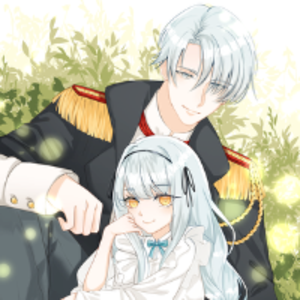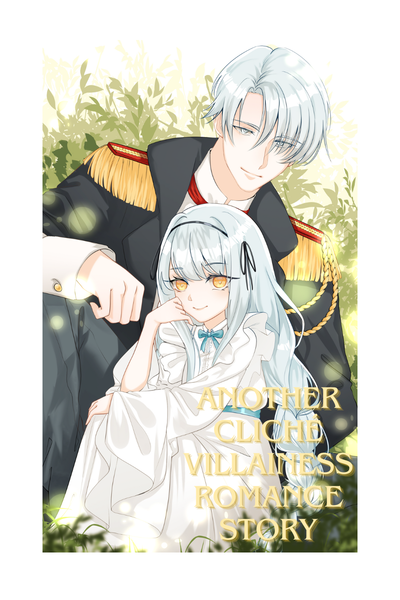Chapter 4 —The Emperor's Trials
"Uck!"
True to Sienna's character, silverware tarnished into a morbid black the moment it dipped into my watery soup. I hadn't even been at the estate for a full week yet, and she blatantly showed hostility towards me. But the only choice I had was to eat my meager portion of poison or starve.
Unpleasant as it was, this amount of poison wouldn't be enough to kill me. It wasn't a plot buff I was relying on. There's a reason why I was confident Sienna could not and would not kill me.
The Emperor's Trials.
To fully understand the emperor's trials, one has to backtrack to the empire's founding.
The four houses, blessed by the goddess of benevolence, Irivia, founded the Pastillia Empire. A deity that fell in love with the wretched humans, defying her kind to usher the barbaric humans into a golden age of prosperity and discovery. She gave everything to the people of the current-day Pastillia Empire.
Before the goddess blessed and unified the people, four prominent houses dominated their respective regions: the Gomiti of the south, Ditalini of the west, Orzo of the north and Fusilli of the east.
The animosity between the four regions painted the land red with the brushstrokes of greed and lust for power. Until one day, the gods collectively punished humanity for their foolishness by flooding the lands with the evil planted in the reddened soil.
Ironically, the demons meant to cause humanity's demise and ultimate division united the people and fortified their strength. Moved by humanity's change of heart and camaraderie, Irivia bestowed each house the power to defeat the evils that plagued their lands. Each house gained mysterious powers from Irivia's blessings.
To this day, it is unknown what powers each house truly possesses. The powers of each house were only known through rumors and specks of spectacles. Despite the contradiction to the purpose of these powers, each house guarded its abilities with great secrecy. The legacy of each house was clouded in murky mystery.
In the end, humanity prevailed thanks to the goddess Irivia's blessings, and, under her guidance, Pastillia was born. It was then decided that the emperor was to be crowned from each house to maintain balance.
Initially, the houses crowned the monarch of each generation, starting with Perciatelli of the South, and the right of succession followed in the order of Ditalini of the West, Orzo of the North, and Fusilli of the East.
Peace did not last as was intended under this system, though. The houses began fighting amongst themselves once again—killing one another's children to crown their child king. The needless slaughter angered the goddess who loved and blessed the houses to bring peace. The empire then lost her protection and was plagued by the evil they once again sowed.
And so the process of succession became more democratic.
Each house was to send a candidate to the capital every generation when the child came of age, where the candidates participated in a series of tests to determine the next imperial successor.
In an effort to prevent bloodshed, the law requires all four houses to participate in the trials. The law created the need for an imperial candidate and a house heir. If one could not procure an imperial candidate from the direct line, then family members of the collateral line would become the imperial candidate. Thus, all children of the direct descendants were accepted as part of the household to prevent the collateral line from inheriting the coveted positions. In some extreme cases, direct descendants were forced to become part of the household even if the child didn't have (or want) anything to do with the house. Hiding direct descendants could be punishable by death.
For years, the emperor's sole control over the trials caused corrupt and greedy emperors to rig the trials in favor of their preferred successor by demanding unrealistic results and implementing impossible tests. The unfairness born from the emperor's absolute control over the trials angered the noble houses. The Council of Nobles was formed and now acts as a check to prevent the reagents from abusing their power.
Although bloodshed and conspiracy continued within the individual households, the goddess was pleased that wars no longer broke out among the four regions.
That is why Iris cannot die.
Until another viable heir is born or found, Iris is the only candidate for the Orzo household in the emperor's trials (also commonly referred to as "the trials"). Unable to get rid of Iris altogether, Sienna harmed the child out of spite, but she probably also kept Iris feeble for another reason.
Sienna needed a reason to capture the duke's affection.
If she could convince the duke that Iris was unsuitable to be the house's representative or heir, she could continue trying to conceive her miracle boy. Because, in truth, Sienna loved the duke, but the duke hated Sienna.
He had not even an ounce of affection for her.
It was the stereotypical loveless political marriage. Sienna married the duke in exchange for prestige and out of youthful infatuation, and the duke obtained valuable resources in exchange for craziness. The novel tells the tragic love story of an unrequited love that delulu Sienna clung to until her dying breath. To her credit, she did truly love the duke in her crazy stalker way until the very end.
When Sienna couldn't conceive after a few years into their marriage, the house elders pushed for the duke to find concubines, so the no-name concubines were brought in to be Orzo surrogates. When the surrogates arrived, Sienna became the source of many misfortunes and heartaches, and the babies that were born ended up dying shortly after for the crime of being female.
But strangely, Iris's mother, Elle, is shrouded in mystery whereas the no-name concubines backstories were unnecessarily detailed for unnamed characters. The reader never learns anything about Elle, and she becomes an unfortunate afterthought.
In retrospect, it's strange how Elle became one of the duke's concubines. Bloodline was everything to the duke, so there's no way he would willingly take on a commoner as a concubine, especially one with such an unclear background.
And Elle.
The most common of common names. No surname or affection attached. A single syllable with little meaning. No attachment. No roots. No family. Just… Elle. Elle, like the millions and billions of others in the world. It felt lonesome whenever Elle was mentioned in the novel, like she was a misty recollection of an unimportant fairytale. Maybe it's because her name made her feel common, like a street sign you saw every day and never noticed. The novel gives Elle a few tragic sentences before never mentioning her again. And that made Iris's mother feel somehow seemingly unimportant whenever she was referred to by her name.
There's no way a blue blood like Cedric Orzo would've had a child with someone with so little status that their name was as common as a roadside wildflower. But that was something useless to think about. The most important thing right now is getting real food.
The horrific fact was Iris grew up eating poison or air or both.
Sienna would periodically stop poisoning Iris when she grew too ill but restricted her food because Iris "needed to watch her figure."
Yes.
A practical toddler needed to "watch her figure." I don't think Iris ever ate real food for the entirety of her sad life. But I refuse to be starved to death's doorsteps.
If we all have to die one day, we might as well die eating tasty things. That and I need to grow strong.
I didn't have very many options, and I needed to figure out a way to escape (or at least better survive) this hell hole. I was physically limited in what I do with a preschooler's body, and I wielded no power. But there are some things I learned as Amelia.
- Brains need a lotta carbs.
- Education is the one thing no one can ever take away from you.
- You can fk anyone up regardless of your size; manipulate the body to do what you want it to.
- If you can't ruin them physically, guilt them and ruin their lives.
If I'm going to effectively and efficiently terrorize this manor, my child's body needs to eat and sleep well. So, I spent the rest of my day brainstorming and devising my schemes. And so the first couple of weeks moved in a blur like this. But as my body was starving and suffering from poison, I could not do much other than weakly breathe. It made me feel hunted and mentally exhausted. There was so little I could do in this state. No matter how loudly I screamed at myself to pull it together and put together a plan, I'd failed.
I was physically and mentally exhausted from the toll the poison was putting me through.
Maybe it was the way my body was deteriorating that made my mind begin to fail as well. Every night, dreams of the novel plagued my mind as overexposed photos, sometimes stationary, sometimes moving, but none of it coherent. Sometimes, I could hear voices speaking dialogue I couldn't recall come the first light of daybreak. But one thing stained my memory, like a bright red wine stain on a white dress.
The duke.
In a bizarre turn of events, the duke was corporative and protective. It wasn't evident to whom, but my fervent prayer was that it was kind will directed towards me and not the protagonist. It was wishful thinking, but a girl could hope. Because that was all I got. There was nothing else that could help me now.
Anger filled me as I continued to dip the dark silverware into the soup and watched the pretentious maid by the door smirk at me. It angered me that my chances of survival were dependent on the goodwill of others. It angered me that there was nothing I could do, that I was helpless. It made the situation feel hopeless. It made it feel like there was no end and no escape.
I wonder what the helpless villainess of The Emperor's Trails felt when the only person she trusted abandoned her with true villains. Only to then be thrust into the hidden horrors within this beautiful prison.
Did she feel scared?
The more I think of it, the angrier and angrier I become. I hated that the story made Iris out to be an irredeemable character. I hated that the author dismissed Iris's pain, but the novel romanticized Veronica's tragic childhood to elicit the reader's sympathy and gain their love but demonized Iris despite both characters enduring the same hardships.
Iris was just a child who wanted to survive in a place that broke her soul and corrupted her.
None of it was her fault.
She was simply a child, too. She only wanted to be loved, and that desire got her ruthlessly killed.
But not this time.
Not if I had anything to say about it.
This time, the story would be written in my script and not by someone else's hands. This time, the villainess would get her redemption arc, survive, and live happily ever after as a wealthy single mogul living her best life.











Comments (0)
See all